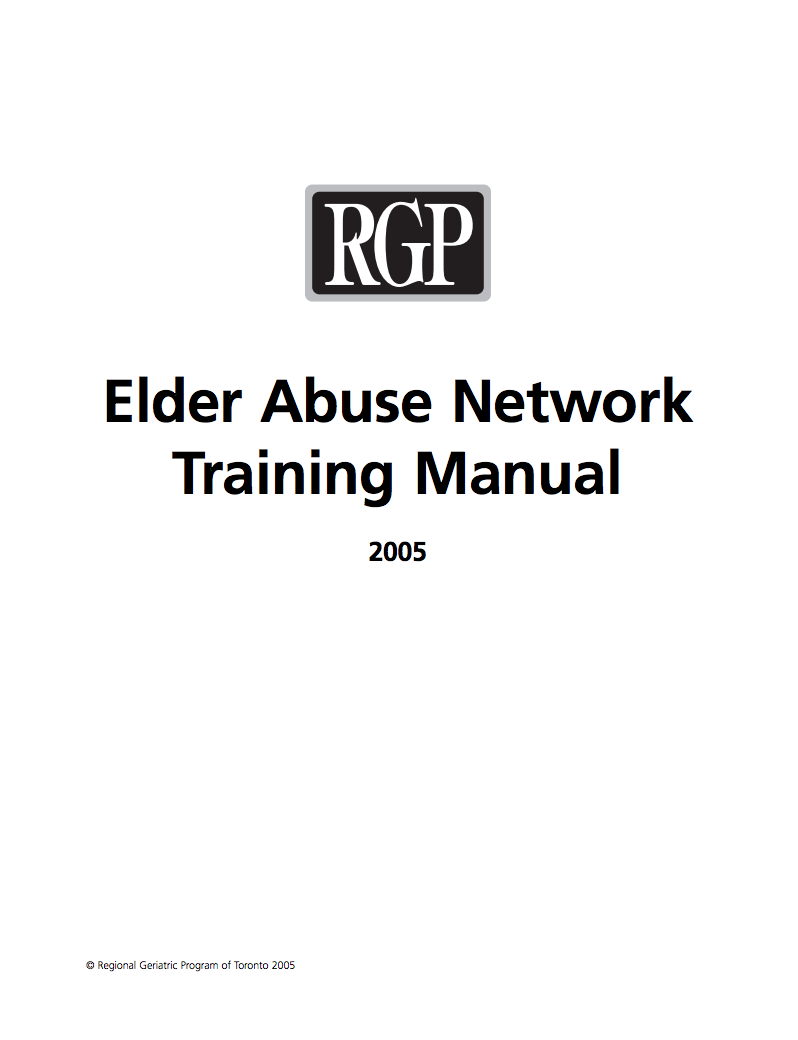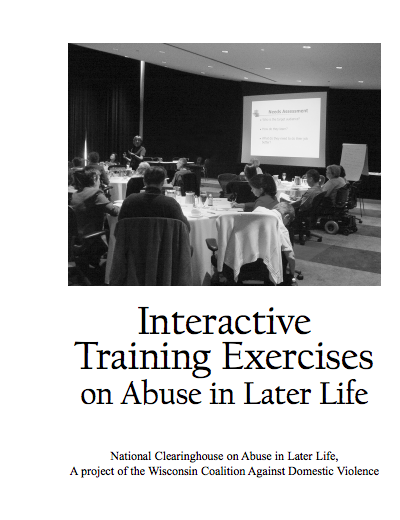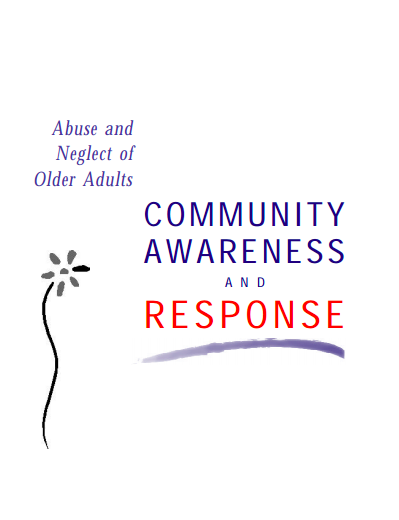Workshops & Presentations
 Overall goal is "to provide a learning environment which will promote dialogue and enhance skills of health care providers regarding the early detection and management of elder abuse. Learning objectives At the end of the workshop the following outcomes are expected. Participants will be able to: • Define various types of elder abuse • Understand the precipitating factors for elder abuse (triggers) • Describe a common profile of a “victim” and “abuser” • Recognize elder abuse and apply intervention strategies to individual situations • Appreciate the importance of working with a team (at least one other person) to problem solve issues related to possible elder abuse • Access relevant community resources and information • Gain confidence related to assessing and managing elder abuse cases."
Overall goal is "to provide a learning environment which will promote dialogue and enhance skills of health care providers regarding the early detection and management of elder abuse. Learning objectives At the end of the workshop the following outcomes are expected. Participants will be able to: • Define various types of elder abuse • Understand the precipitating factors for elder abuse (triggers) • Describe a common profile of a “victim” and “abuser” • Recognize elder abuse and apply intervention strategies to individual situations • Appreciate the importance of working with a team (at least one other person) to problem solve issues related to possible elder abuse • Access relevant community resources and information • Gain confidence related to assessing and managing elder abuse cases."
 "This manual offers interactive exercises on understanding and responding to abuse in later life. By Bonnie Brandl and Deb Spangler, National Clearinghouse on Abuse in Later Life."
"This manual offers interactive exercises on understanding and responding to abuse in later life. By Bonnie Brandl and Deb Spangler, National Clearinghouse on Abuse in Later Life."
Source: National Online Resource Centre on Violence Against Women (USA)
From the Family Violence Prevention Unit, Health Canada. "This introductory guide to community approaches provides information and an approach that communities can use to develop policies, programs and services that support older adults. It raises questions about perceptions of the issue and is intended to stimulate discussion and action at the community level. Community Awareness and Response: Abuse and Neglect of Older Adults aims to create an environment where older adults feel confident to speak out about abuse and neglect. The main focus of any community effort to address the issue must be to promote the wellbeing of older adults and strengthen their right to self-determination, respect and dignity. Only then will the problem begin to be solved."
Page 10 of 10


















